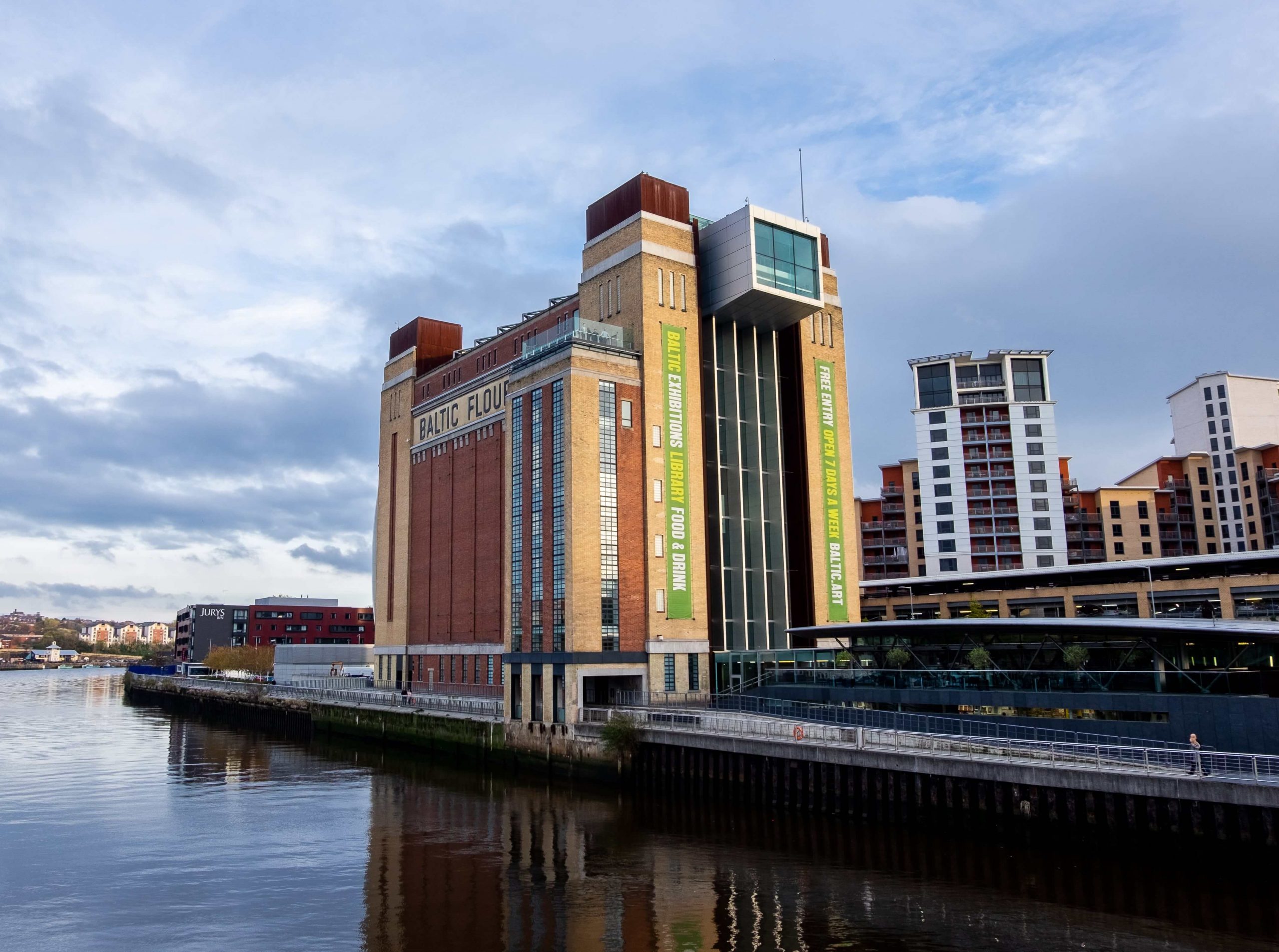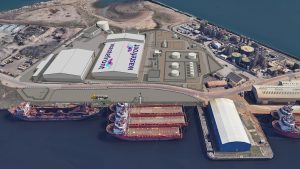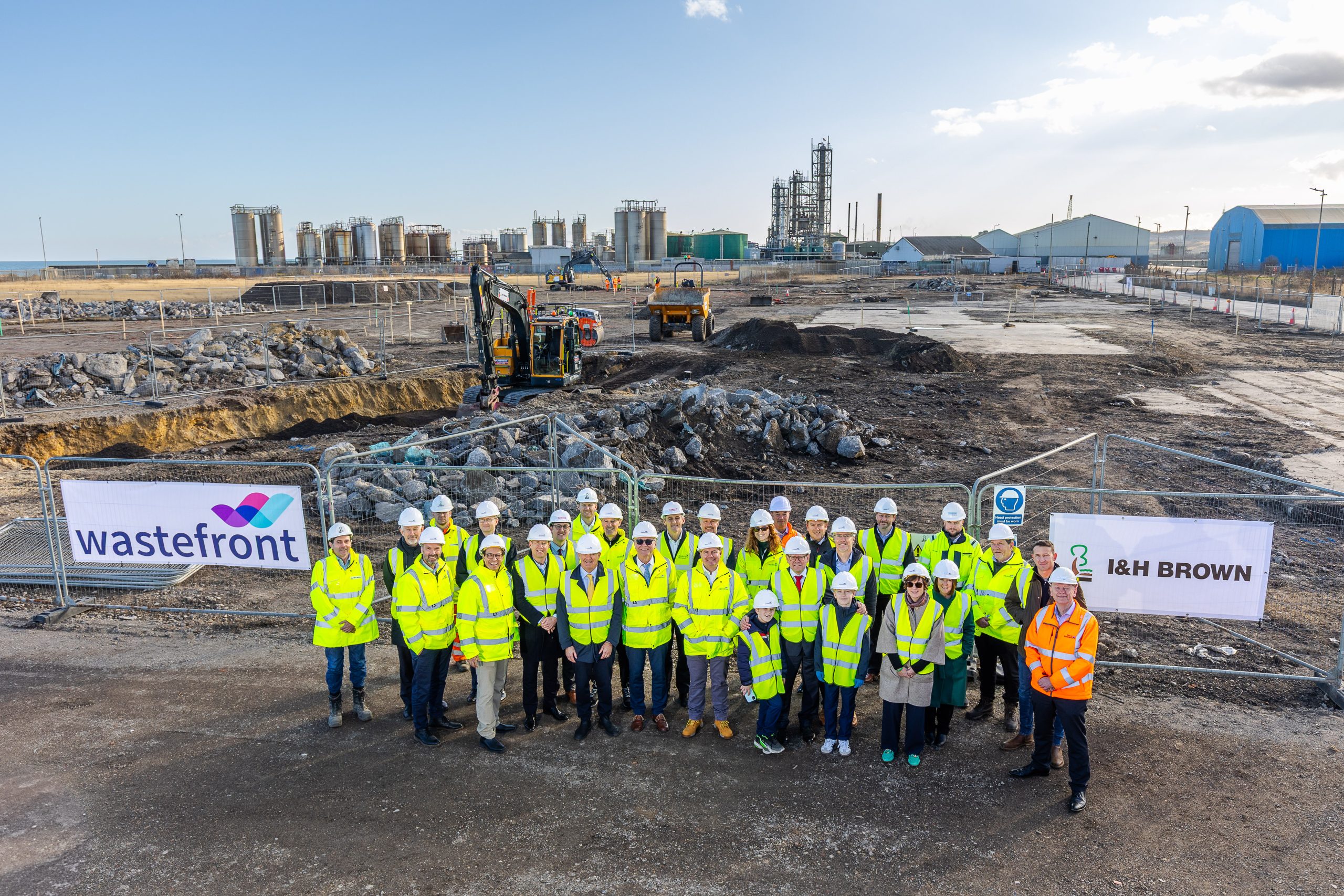
Wastefront today announced that it has officially commenced construction on its groundbreaking £100 million tyre-to-fuel facility at the Port of Sunderland. The project marks a significant step in the UK’s push for sustainable aviation fuel (SAF) production, while delivering a major economic boost to the North East, and will create more than 100 local jobs. International Airlines Group (IAG) was the first European airline group to aim for 10% SAF usage by 2030 and in January this year, the company announced an investment in Wastefront.

The facility’s first commercial phase will be starting up at the end of 2026, with the second phase launching a year later. Once fully operational, the plant will process 10 million end-of-life tyres annually – making it the largest facility of its kind in Europe – converting them into tyre-derived oil for refining into SAF and other sustainable fuels. With around 55 million tyres reaching the end of their life per year in the UK, Wastefront’s fully circular process will address a pressing waste issue.
The Sunderland facility, the UK’s first fully circular tyre-to-fuel plant, utilises an advanced heating process without oxygen called pyrolysis technology to convert end-of-life tyres into tyre-derived oil, which will be refined into SAF. Wastefront’s system is self-sustaining, recycling the gases generated during pyrolysis to power its operations. By 2030, Wastefront aims to operate four large-scale plants, collectively producing 128,000 tonnes of oil annually – enough to yield approximately 90,000 tonnes of SAF.
The reduction of carbon emissions from aviation is critical for the industry. The UK’s SAF mandate – introduced on 1 January 2025 – requires at least 10% of all jet fuel used in UK flights to come from sustainable feedstocks by 2030, rising to 22% by 2040. However, domestic SAF production remains significantly short of the target of 1.2 million tonnes needed by 2030.
The project strengthens the North East’s position in the UK’s growing net zero economy. According to the Energy and Climate Intelligence Unit (ECIU), the UK’s net zero sector grew by 9% in 2023, compared to just 0.1% for the broader economy. Wastefront’s investment highlights the region’s leadership in sustainable innovation, positioning Sunderland at the forefront of the transition to more sustainable fuels.
The groundbreaking ceremony is being attended at the Port of Sunderland by Wastefront CEO Vianney Valès and the wider company including Wastefront’s founders (Christian A. Hvamstad, Vegard Bringsford and Inge Berge), Cllr Michael Mordey (leader of Sunderland City Council), Lewis Atkinson (MP for Sunderland Central), IAG’s Group Sustainability Officer, Jonathon Counsell, and Sustainable Fuels and Carbon Manager, Leigh Hudson, and other key stakeholders.
Vianney Valès, CEO of Wastefront, stated:
“Wastefront is delivering an innovative project to focus on two key issues: tyre waste and aviation emissions. Our circular process not only prevents millions of tyres from being discarded in landfills but also provides a scalable, cost-effective pathway for SAF production. This process can also reduce lifecycle emissions by up to 80% compared to fossil fuels. The Sunderland facility is just the beginning – we aim to expand rapidly to meet the growing demand for sustainable fuels.”
Jonathon Counsell, IAG’s Group Sustainability Officer, commented:
“Last year IAG powered 1.9% of our operations using SAF and we are pleased to support Wastefront’s pioneering work to turn waste tyres into much-needed, domestically produced renewable fuel. To enable aviation to meet the UK’s new mandate and growing SAF demand, there needs to be even greater policy support so manufacturers and innovators like Wastefront can scale new technologies.”
MP for Sunderland Central, Lewis Atkinson, added:
“This £100 million investment by Wastefront is a huge vote of confidence in Sunderland, our workforce, and our region’s future as a leader in green innovation. The Port of Sunderland is rapidly becoming a hub for cutting-edge industry, and this project will create skilled jobs for local people while also securing our position at the forefront of the UK’s net-zero economy. Wastefront’s commitment to our city demonstrates that Sunderland is a place where business and industry can really thrive. I look forward to seeing the long-term benefits this investment will bring to our community.”
Leader of Sunderland City Council and chair of the Port of Sunderland board, Cllr Michael Mordey, said:
“Port of Sunderland is growing a deserved reputation as the UK’s advanced materials handling hub. It’s a port with a clear vision to support the circular economy, in a city advancing with one of the most ambitious regeneration programmes in the country, and we’re proud that this has captured the attention of Wastefront.”
With an estimated 4 billion tyres currently sitting in landfills or stockpiles – a number projected to reach 5 billion by 2030 – Wastefront recognises the global scale of tyre waste and the rising demand for sustainable fuels, and is actively exploring opportunities in the US, the Middle East, and Northern Europe. This expansion aligns with the tyre pyrolysis market’s projected growth from $110 million in 2024 to $340 million by 2033, at a CAGR of 12.87%.




